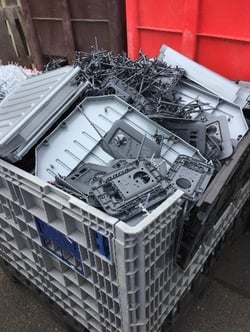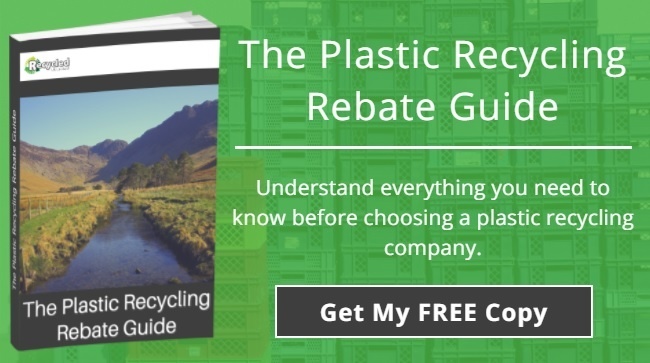
The rule changes regarding plastic exports to China have changed the game for many businesses that use plastic recycling companies. Some businesses have now been told that certain types of plastic waste will no longer be accepted. This is frustrating but is not an insurmountable problem. The change in policy is not a blanket ban, but primarily concerns lower grades of recyclable plastic.
Mixed Plastic Bales
So-called mixed bales of plastic are also affected. A mixed bale is a consignment of recyclable plastics of different types and grades. Formerly this material could be exported to China in bulk and sorted at its destination. From 1st January 2018, however, this is not the case. The presence of any one of the 24 banned low grade plastics in a mixed bale may lead to the consignment being rejected at Chinese customs. Many recycling companies are simply not prepared to take the risk, which is bad news for the hundreds of British companies who simply collect all their plastic recycling scrap in single containers ready for collection.
 Figure 1: A mixed bale of plastic scrap
Figure 1: A mixed bale of plastic scrap
What This Means For You
This lays greater importance on the sorting process whereby different types of plastic are cleaned and separated prior to recycling. It also forces local authorities and recycling companies to think more creatively and sustainably about how to dispose of plastic scrap. Between 2012 and 2016, 2.3 million tonnes of plastic waste were exported from the UK to China1, joining an estimated 7.3 million tonnes of waste plastic exported from the US and EU27 to China every year.
This industry is worth over £370 million a year to the Chinese economy, and much of the plastic is recycled at source into raw materials for China’s booming manufacturing industry. However, much of the waste also ends up being incinerated or consigned to landfill in China, either because it is not cost-effective to recycle, or simply because the country’s infrastructure is already struggling to cope with domestic waste. Such a change in quality control procedures for a plastic exports was long overdue, so we were not really surprised by the actions of the Chinese government last year.
Relying on exports to China was never ideal, but fortunately there are other ways. Since the ban was announced in July 2017 we have met with many companies to help put systems in place to split out and wash plastic waste before it is collected. Once established, such a system involves no more effort than the current single collection point bales. It also means that different types of plastic are each recycled in the appropriate way, with the valuable high grade plastics being unpolluted by lower grade materials, such as polyurethane. It is good news for you, as the presence of lower grade plastic in a consignment lowers its value, leading to a reduced rebate.
As our plastics are processed and primarily recycled at our facility here in the UK, with only a minority of materials being exported to partners in third countries, we are not dependent on exports to China. Nor do we use landfill or incinerators to destroy a valuable recyclable resource. Additionally, with an efficient sorting and processing regime in place on-site, our processing costs are reduced, allowing us to offer better prices for each grade of plastic.
Gain The Best Value From Your Unwanted Plastic Scrap
Waste plastic is a good source of revenue for your business, but only if the right strategic approach is taken to separation, cleaning and other processing. Much of this depends on having the right recycling company on your side to ease the process, but there are also steps you can take to make your life easier. To find out more about getting the best value for your scrap, please download our new e-book: The Plastic Recycling Rebate Guide by following this link.
[1] https://www.independent.co.uk/environment/china-foreign-waste-ban-recycling-a8011801.html



